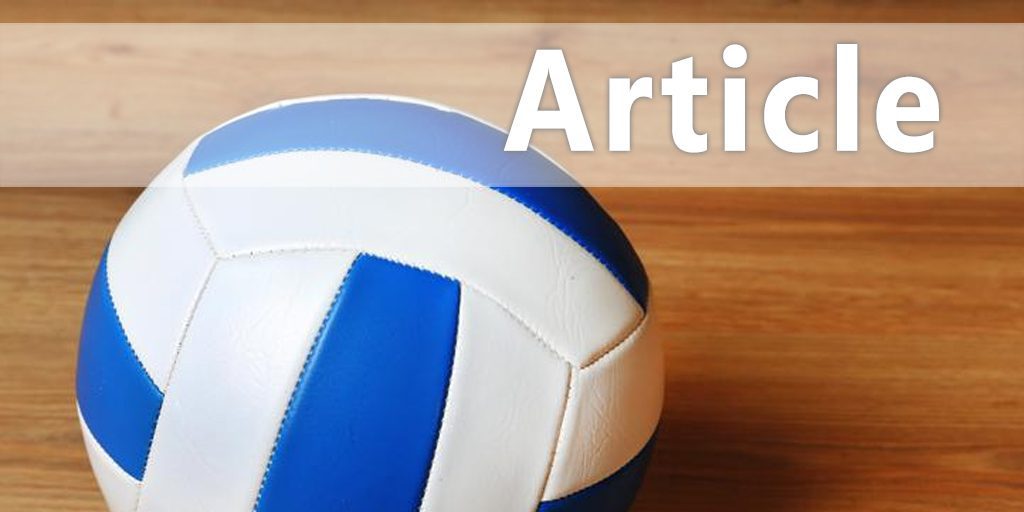| Common Goals |
| By: Brad Keller
Originally Published in: Coaching Volleyball Magazine Provided by: AVCA The foundation for success in team sports begins with working together toward a common goal. That common goal can be shared by more than just the players and coaches. Each individual in the staff surrounding a team can be pivotal in helping to achieve the common goal, and this extends from the athletic director to even the janitor. Many might think this is everyday wisdom, but the true importance behind it is often lost. The ability to touch an individual's life and ultimately produce a positive difference through our sport is powerful. This is the essence of leadership. At the end of the day, we are expanding our community and inspiring them with our vision and long term goals. Everyone surrounding the team has something to contribute, and we as leaders need to learn how to maximize this opportunity. Too often we may catch ourselves distracted by our daily routine, focusing solely on getting to the gym to coach, and all the while, we are losing the opportunity to spread our vision with others. Building important, meaningful relationships outside the immediate team is a necessary step in constructing a successful program. One of the main ingredients in this process is building a solid relationship with an athletic director, principal, club director and/or other important figures. This task can be daunting yet necessary and rewarding for one's personal and professional development. If these people believe in the program's vision, then they can help facilitate growth through providing resources or other opportunities. To help bridge this relationship, coaches should allow them to take part in shaping the progression of the vision by having them sit in on practice, welcoming them to team discussions, inviting them to the end-of-the-year banquet and bringing them on competitive road trips. In so doing, the supportive network for the program strengthens, providing more opportunities for the players and coaches. Growing your personal and professional vision does not just end with an athletic director or key administrator. Developing strong relationships with support staff is another great avenue to explore for success. So how do we accomplish this objective? Sometimes the beginning may be simply getting to know all the staff and personnel around your team. We take great pride in getting to know our team and future prospects, so why not the people we come in contact with daily? That personal touch goes a long way. My parents once told me, "Brad, make sure you are friends with the people who have more keys than you." In other words, learn from people that have more responsibility. Armando, one of the university's most dependable facilities managers, is in charge of the maintenance of all the athletic buildings on campus. The best way to define him is "The Man!" Every chance we get to interact involves an attempt at teaching me some Spanish along with discussing the men's volleyball team. Some of you may know that a couple years ago I unfortunately broke my feet in a supremely athletic jump rope accident. What people may not realize is that when my wheelchair broke on multiple occasions, hindering my ability to get to practice, Armando was there fixing the problem immediately. The relationship that I had established with him made it easy for me to pick up the phone and ask for help. This everyday interaction strengthened our relationship and ultimately helped out the program by extending the family. Continuing to develop these relationships with support staff cannot be emphasized enough. This includes the SID, marketing and custodial departments, as well as staff associates, other coaches, teams and the student services staff. Do not overlook your colleagues. Earn respect by showing respect. Show your community that you care about what they do. Attending other teams' competitions in full force is a great way to show support, develop camaraderie, and earn respect throughout the school. Believe it or not, these teams are fighting for the same thing you are, and showing support and respect will only help your program. Another example is to create a team slogan to share and promote with the surrounding community. USA Volleyball's motto, "All In," this past summer was simple, direct, yet extremely powerful. It was something that could be put on apparel, given or sold to the public, and easy to remember. This simple theme united the team, rallied the community and eventually developed great momentum throughout their Olympic run. This is a great example of a slogan that helped build Team USA's support system. Building the family outside the team is a great and necessary step in building a successful program. The ultimate networking opportunities might be directly within your athletic department, school, club or surrounding community. Creating important, meaningful relationships outside the immediate team requires an attention to detail - a personal touch. Missing these opportunities to expand your vision and include people close to the program may end up hindering your long-term goals. Treating the network of people surrounding the team with respect will give them the opportunity to share in your program. This will ultimately benefit you both professionally and personally. |






